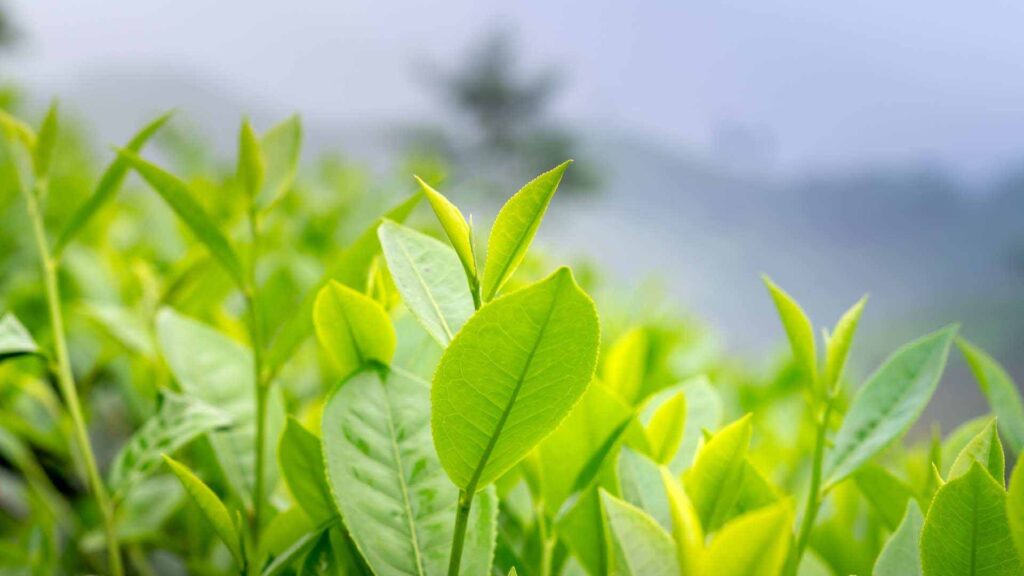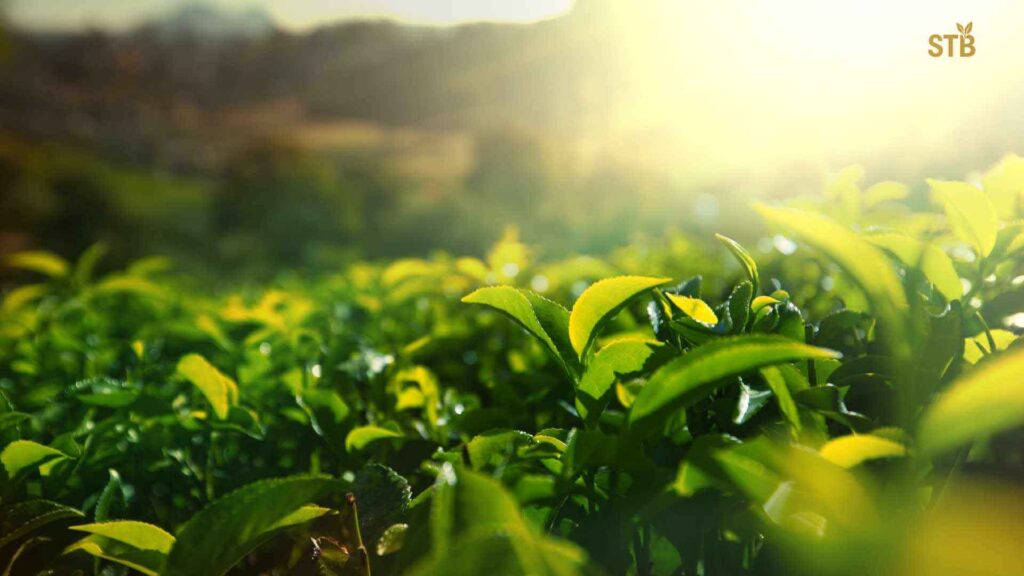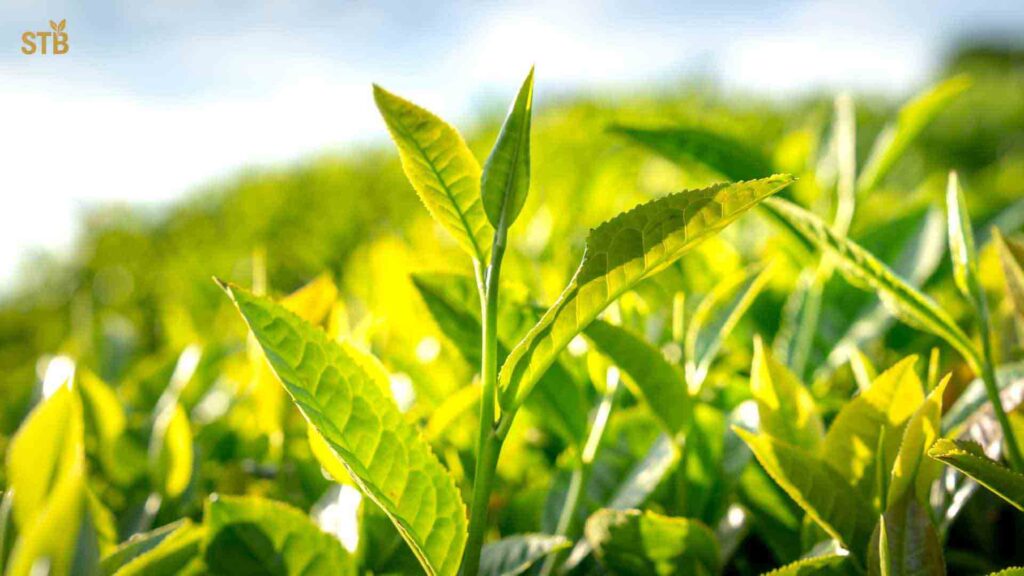At STB Leaf, we believe that the journey of our fresh premium tea, from the lush Sylhet tea gardens of Bangladesh to your cup, is as significant as the final brew itself. This journey is steeped in the dedication and expertise of the tea garden Sylhet Bangladesh farmers, whose generational knowledge and sustainable practices are integral to the exceptional quality of every leaf. Our commitment to ethical sourcing extends to celebrating these individuals, whose tireless efforts cultivate the rich flavors and aromas that define our premium selections.
This narrative explores the lives and contributions of the farmers who are the backbone of Bangladesh’s renowned tea industry, particularly in the historically significant Surma River Valley. These dedicated cultivators, often working in regions with a high density of tea gardens, are crucial to maintaining the quality and consistency of the tea, contributing significantly to both local livelihoods and the global tea market.
Despite the critical role of these laborers, many tea workers in Bangladesh face challenging socioeconomic conditions, with over 74% classified as poor. This pervasive poverty among tea garden workers, often stemming from capability deprivation, underscores the urgent need for interventions that go beyond mere compliance with labor laws to foster true well-being and economic upliftment.
At STB Leaf, we aim to transcend these challenges by forming direct partnerships with these farmers, ensuring fair compensation and investing in community development initiatives that empower them and their families. This human-centered approach not only guarantees the ethical provenance of our fresh premium tea but also fosters a sustainable ecosystem where the well-being of the tea garden Sylhet Bangladesh communities is intrinsically linked to the quality of our product.
This commitment ensures that every sip of STB Leaf tea supports a chain of fair practices, from cultivation to consumption, enriching the lives of the marginalized tea garden workers in Bangladesh, who often face social exclusion and inhumane living conditions. Their historical marginalization is deeply rooted, with generations remaining tied to the tea gardens, often lacking access to education and basic amenities.
Despite constitutional provisions aimed at ensuring equal coverage for all citizens, these marginalized groups often remain excluded from essential services, perpetuating a cycle of deprivation that necessitates targeted interventions for health and sanitation. Our direct engagement with these communities seeks to bridge these gaps, investing in infrastructure and programs that improve their living standards and provide pathways to upward mobility, thereby breaking the cycle of intergenerational poverty.
This proactive engagement also addresses the fragmentation of responsibility often observed in complex supply chains, where subcontracting can obscure accountability for labor law compliance and worker welfare. By forging direct relationships, STB Leaf mitigates these risks, fostering a transparent and accountable supply chain that prioritizes the welfare of every individual involved in cultivating our fresh premium tea.
This holistic approach allows us to not only guarantee the superior quality of our fresh premium tea but also to uplift the often-overlooked tea garden Sylhet Bangladesh communities through sustainable and equitable practices. This includes addressing critical issues such as inadequate housing, lack of access to clean water, and insufficient sanitation facilities, which continue to plague many tea garden communities in Bangladesh.
Our initiatives extend to providing essential amenities and educational opportunities, aiming to transform these conditions and improve overall quality of life for the laborers and their families, thereby fostering resilient and thriving communities within the tea garden regions of Bangladesh.
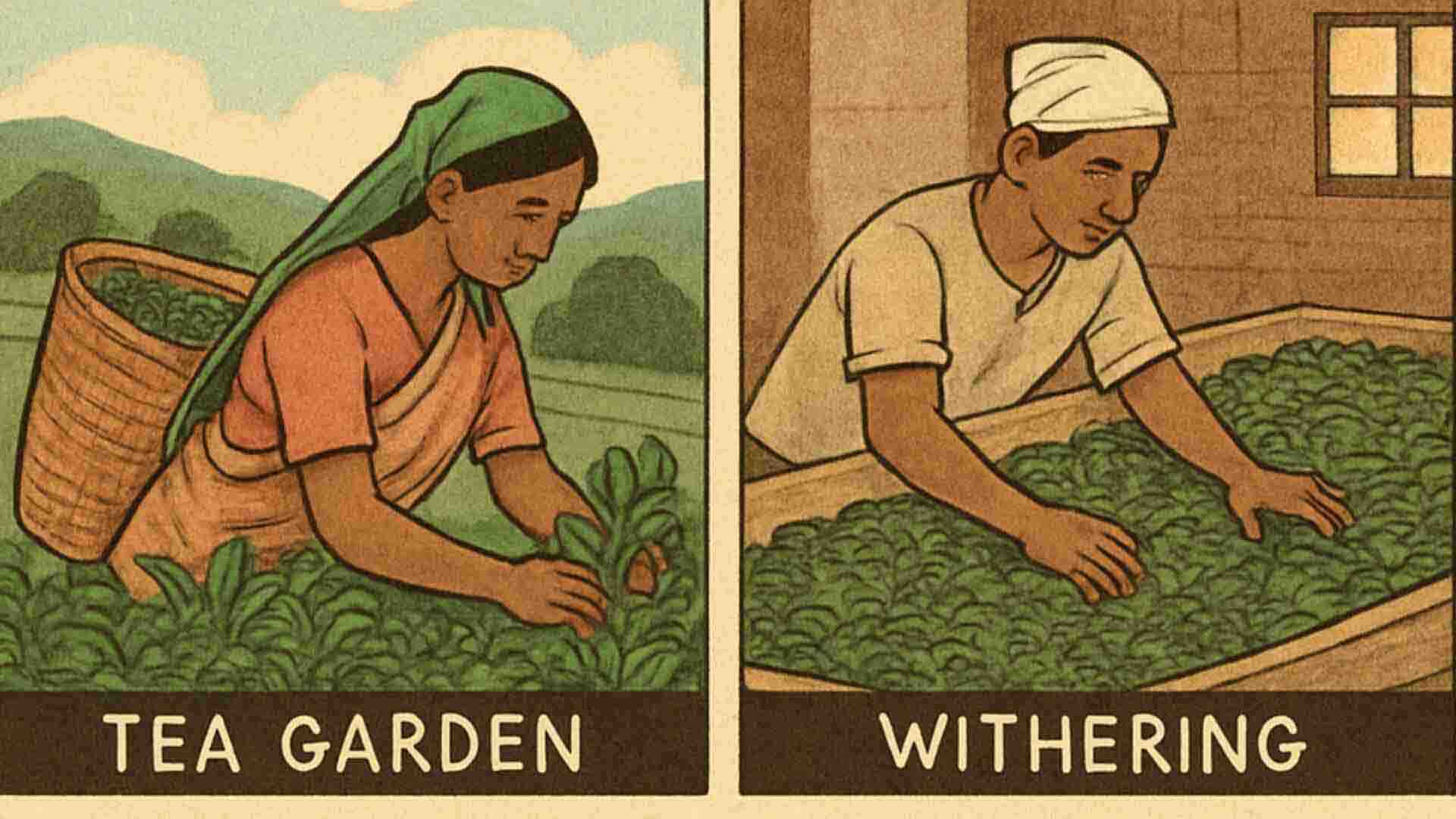
Meet the Farmers Behind Our Premium Tea
At STB Leaf, we believe that the journey of our exquisite fresh premium tea begins not in a factory, but on the verdant slopes of Bangladesh’s renowned tea gardens, nurtured by the dedicated hands of our partner farmers. These skilled individuals, often working in a labor-intensive agro-based industry, are the bedrock of our commitment to quality, ensuring that every leaf harvested meets our stringent standards. Their deep understanding of the land, passed down through generations, is crucial for cultivating the unique flavor profiles that distinguish our fresh premium tea.
This intergenerational knowledge is not merely anecdotal; it encompasses nuanced understandings of soil composition, microclimates, and indigenous tea varietals, which are vital for sustainable cultivation and flavor development. This traditional expertise, combined with modern agricultural techniques and ethical sourcing practices, enables STB Leaf to consistently deliver a fresh premium tea product that is both high-quality and sustainably produced, supporting the livelihoods of these essential farmers.
The integration of such traditional ecological knowledge with contemporary agricultural science optimizes yield and preserves the unique terroir of the Sylhet tea gardens. Moreover, their intimate connection to the land allows for meticulous cultivation practices, which are essential for producing the exceptional quality associated with the Sylhet tea gardens. Their work not only sustains their families and communities but also contributes significantly to Bangladesh’s national economy, making the tea industry a vital sector.
Recognizing this, STB Leaf actively supports these agricultural communities, implementing strategies that ensure fair wages and improved working conditions, thereby fostering a resilient and sustainable supply chain. This commitment to farmer well-being extends beyond economic considerations to include climate adaptation strategies, crucial for a perennial crop like tea that is highly susceptible to environmental shifts.
For instance, fluctuations in rainfall patterns directly impact tea yield and quality, necessitating robust support for farmers in mitigating these environmental challenges. Furthermore, investments in advanced irrigation systems and drought-resistant tea varietals are critical to safeguarding future harvests and ensuring the long-term viability of these agricultural communities. Such measures help reinforce food sovereignty and protect smallholder livelihoods, preventing the adverse effects of agricultural modernization and monoculture often linked to deforestation and environmental degradation.
STB Leaf and Our Commitment to Quality
Our dedication to delivering exceptional fresh premium tea is inextricably linked to the well-being of the Sylhet tea gardens and the diligent farmers who meticulously cultivate each leaf, underscoring our holistic approach to ethical sourcing and sustainable agricultural practices. This commitment ensures that every cup of STB Leaf tea not only offers a rich and authentic flavor but also supports the economic stability and environmental stewardship of the regions from which it originates.
This foundational principle guides our interactions with the numerous smallholder farmers in Bangladesh, a country where tea production constitutes 2% of the global output and contributes significantly to foreign currency earnings. Moreover, tea farming in Bangladesh is a crucial socio-economic activity, providing employment and livelihood opportunities for a substantial portion of the rural population, particularly in the Sylhet tea gardens region.
Our direct engagement with these farmers ensures fair trade practices and fosters a resilient agricultural ecosystem, vital for the continued production of high-quality tea leaves. This collaborative model not only strengthens the local economy but also empowers farmers with sustainable farming techniques and resources to adapt to changing climatic conditions, which are increasingly impacting tea cultivation in Bangladesh.
The vulnerability of tea plants to extreme weather events, such as prolonged droughts and intense rainfall, necessitates proactive strategies to safeguard harvests and maintain consistent quality. These efforts are particularly critical given that tea is a perennial crop highly sensitive to climate variations, with both short-term weather events and long-term climate change impacting yield and quality. Therefore, understanding and mitigating the impacts of rainfall distribution on tea production is paramount for ensuring both the socio-economic stability of tea-growing regions and the consistent supply of high-quality tea.
To this end, STB Leaf invests in research and development initiatives focused on climate-resilient tea varieties and advanced irrigation technologies to safeguard future harvests. These strategic interventions are vital for preserving the delicate ecosystems of the tea gardens and ensuring the sustained livelihoods of the farming communities, especially considering that over 80% of annual rainfall in Bangladesh’s tea zones occurs between June and September, making effective water management crucial.
Furthermore, adapting to these specific seasonal rainfall patterns is essential, as irregular monsoon distribution can negatively impact both labor demand and overall tea yields. This highlights the pressing need for integrated adaptive measures to cope with the changing climate, encompassing both technological innovations and policy reforms. These adaptive measures include state policies and strategies focused on climate adaptation, as well as collaborative networks involving multi and interdisciplinary research and communication units.

The Importance of Local Farmers in Tea Production
The deep-rooted knowledge and stewardship of local farmers are indispensable to the cultivation of premium tea, as their ancestral practices contribute significantly to the unique characteristics and sustainability of the tea leaves. Their intimate understanding of the microclimates and soil compositions within the Sylhet tea gardens allows for optimal cultivation techniques, ensuring the robust health and productivity of the tea bushes.
This traditional ecological knowledge, passed down through generations, is crucial for maintaining the delicate balance of the tea garden ecosystem, particularly in areas susceptible to the impacts of climate variability. Moreover, integrating modern agricultural science with these traditional methods can lead to enhanced resilience against environmental stressors and improved tea quality. The success of such integration, however, depends on collaborative efforts between farmers, researchers, and policymakers to develop adaptive strategies tailored to specific regional conditions and socio-economic contexts.
This collaborative approach is essential for mitigating the challenges posed by unpredictable weather patterns, such as heavy rainfall and prolonged droughts, which can severely impact tea yields and quality. For instance, the precise timing and distribution of rainfall directly correlate with both the quantity and quality of made tea, emphasizing the need for comprehensive hydrological management strategies. Such strategies often involve optimizing irrigation practices, implementing water conservation techniques, and fostering the development of drought-resistant tea varieties.
These nuanced cultivation methods, often passed down through generations, contribute directly to the distinctive flavor profiles and overall quality that differentiate tea from the Sylhet region. Furthermore, the ethical partnership between STB Leaf and these farmers ensures fair compensation and access to resources, fostering sustainable livelihoods and enabling them to continue their vital role in producing fresh premium tea.
This mutualistic relationship not only preserves traditional farming wisdom but also drives innovation in sustainable agriculture, benefiting both the environment and the consumer by delivering an exceptional product. This commitment extends to providing training on advanced agricultural practices and access to sustainable farming technologies, further enhancing the farmers’ capacity to produce high-quality tea while safeguarding natural resources.
This synergistic approach fosters a resilient agricultural system capable of adapting to environmental challenges, thereby ensuring the consistent availability of fresh premium tea for discerning consumers.
Our Partnership Philosophy: Fair Trade and Sustainability
Our unwavering commitment to fair trade principles ensures that every cup of STB Leaf tea directly contributes to the well-being and economic stability of the farming communities in Sylhet. This philosophy transcends mere transaction, embedding a holistic approach that uplifts livelihoods through equitable pricing, safe working conditions, and community development initiatives. We believe in fostering long-term relationships built on mutual respect and transparency, providing farmers with the necessary resources and support to thrive.
This includes comprehensive training programs on sustainable agricultural practices, access to advanced farming technologies, and financial literacy workshops, all designed to empower farmers and enhance their operational resilience. Moreover, our certifications, which extend beyond conventional standards, provide tangible proof of our commitment to both ethical sourcing and environmental stewardship.
These certifications, such as those for ‘Ozone Friendly Tea,’ exemplify our dedication to environmentally sound practices and contribute to the broader goal of ecological sustainability within the tea industry. By prioritizing direct trade relationships, STB Leaf circumvents intermediaries, ensuring a larger portion of the retail price reaches the farmers directly, thereby bolstering their economic independence and allowing for reinvestment in their communities and sustainable farming practices.
This direct engagement also facilitates knowledge transfer, allowing for the co-creation of innovative solutions to agricultural challenges and promoting continuous improvement in tea cultivation. This robust framework not only enhances the quality and consistency of our fresh premium tea but also fortifies the socio-economic fabric of the tea-producing regions. This approach cultivates a robust and ethical supply chain, guaranteeing that consumers receive a high-quality product while simultaneously supporting the environmental and social well-being of the communities involved in its production.
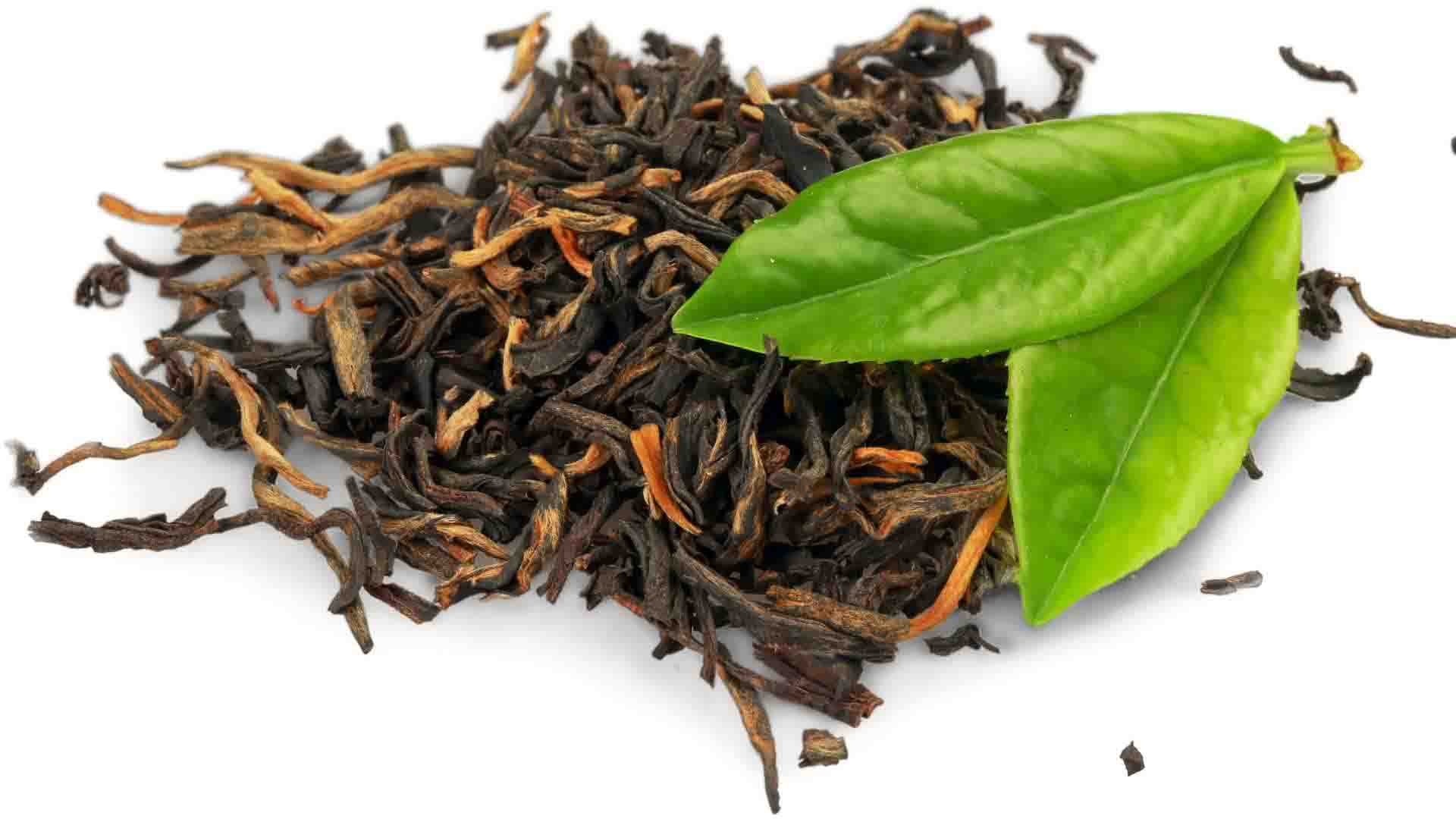
The Faces Behind the Leaves: Farmer Spotlights
Here, we introduce you to some of the dedicated individuals and families whose passion and expertise are instrumental in bringing STB Leaf’s exceptional teas from the gardens of Bangladesh to your cup. These personal narratives illuminate the profound connection between the land, the tea, and the communities, offering a glimpse into the daily lives and generational wisdom that define the quality of Sylhet tea gardens. We invite you to discover their stories, appreciating the intricate journey of each leaf and the hands that meticulously nurture it from sprout to harvest.
By highlighting these individual efforts, STB Leaf aims to foster a deeper appreciation for the artisanal craftsmanship embedded in every batch of fresh premium tea. This human-centered approach not only builds brand authenticity but also reinforces the tangible benefits of sustainable sourcing for both producers and consumers. For instance, stories of individual farmers mastering organic cultivation techniques, despite economic pressures, exemplify the dedication that underpins the superior taste and quality of our teas.
These narratives underscore the significant human investment in each harvest, demonstrating how their meticulous care directly translates into a truly fresh premium tea. Moreover, understanding the diverse backgrounds and cultivation methods employed by these farmers, from traditional shade-grown techniques to innovative water management strategies, further enriches the consumer’s connection to the product and promotes transparency within the supply chain.
Such transparency is crucial in an agricultural supply chain, which often involves numerous entities from cultivation to consumption. This level of insight into the production process distinguishes STB Leaf, fostering trust and a deeper connection between consumers and the origins of their tea. Moreover, sharing these stories cultivates a deeper appreciation for the complex socio-economic landscape within which tea is produced, highlighting both the challenges and triumphs of small tea growers.
This approach helps to demystify the agricultural process, enabling consumers to understand the effort and dedication required to produce high-quality tea, particularly within the context of Bangladeshi tea gardens. Furthermore, by spotlighting these dedicated individuals, we aim to shed light on the often-overlooked human element of tea production, emphasizing the skill and dedication that contribute to our fresh premium tea.
This human-centric storytelling approach not only resonates with consumers seeking authentic, ethically sourced products but also provides a platform to acknowledge the invaluable contributions of these farmers to the global tea industry. One such farmer, Rahim, a third-generation tea grower in the heart of Sylhet, exemplifies the deep-rooted knowledge and unwavering commitment that define our network of producers. His family has cultivated tea for over 70 years, employing traditional methods passed down through generations, ensuring the integrity and unique flavor profile of his tea leaves.
Sustainable Farming Practices for Premium Tea
The cultivation of fresh premium tea at STB Leaf is deeply rooted in sustainable agricultural methodologies, encompassing techniques that preserve biodiversity, enhance soil health, and minimize environmental impact. These practices are crucial for maintaining the ecological balance of the tea gardens in Sylhet, Bangladesh, and ensuring the long-term viability of high-quality tea production. For example, Rahim meticulously practices intercropping, integrating nitrogen-fixing plants among his tea bushes to naturally enrich the soil and reduce the need for synthetic fertilizers.
This method not only fosters a healthier ecosystem but also contributes to the distinct, nuanced flavor profiles characteristic of STB Leaf’s fresh premium tea. Furthermore, careful water management strategies, including rainwater harvesting and efficient irrigation systems, are employed to conserve this vital resource, particularly in regions prone to seasonal variations in rainfall, thereby ensuring the sustained production of high-quality tea leaves.
Ecological pest management strategies, focusing on biological controls and maintaining a healthy agro-ecosystem with diversified trees and grasses, are prioritized over conventional chemical interventions to protect both the tea plants and surrounding environment. This holistic approach to farming not only ensures the purity and safety of our tea but also supports the local biodiversity, creating a harmonious balance between cultivation and conservation.
These sustainable practices ultimately contribute to the superior quality and distinctive taste of STB Leaf’s fresh premium tea, differentiating it in the global market. Moreover, some small tea growers leverage technology packages that include improved clones and artificial irrigation, alongside traditional methods, to optimize green tea leaf production and enhance overall farm efficiency.
Such advancements, including the adoption of precision agriculture techniques, allow for optimized resource utilization and yield improvements while minimizing environmental footprints. These modern approaches to sustainable agriculture, combining traditional wisdom with cutting-edge innovations, are increasingly vital in addressing global challenges such as climate change and resource depletion, ensuring the resilience and eco-friendliness of farming practices.

Challenges Faced by Tea Farmers in Bangladesh
Despite their dedication, tea farmers in Bangladesh encounter a multitude of socio-economic and environmental challenges that significantly impact their livelihoods and the sustainability of their operations. These challenges range from inadequate infrastructure and limited access to essential resources like clean water and proper sanitation, to fluctuating market prices and the overarching effects of climate change on crop yields and quality.
For instance, climate change manifests through unpredictable weather patterns, including increased frequency of droughts and floods, which directly threaten tea plant health and subsequent harvests. Furthermore, the lack of robust irrigation infrastructure often exacerbates the impact of droughts, leaving many smallholder farmers vulnerable to significant crop losses. This vulnerability is further compounded by economic pressures, such as volatile market prices for raw tea leaves and the difficulty in securing fair compensation for their labor, often due to complex supply chains and limited direct market access for smallholders.
Additionally, labor disputes, low wages, and substandard living conditions for tea garden workers remain persistent issues within the industry, further complicating the socio-economic landscape for farmers. Historically, the tea industry in Bangladesh, established by the British in 1854 in Sylhet, has relied on laborers brought from various parts of the Indian subcontinent, creating a complex demographic landscape where 80 ethnic groups exist across 156 tea gardens.
This historical context underscores the intricate social structures and legacy issues that continue to shape the lives and livelihoods of tea farmers and laborers in these regions, impacting their access to resources and opportunities. These deep-seated systemic issues necessitate comprehensive interventions that address not only agricultural practices but also socio-economic disparities and infrastructural deficiencies within the tea-producing region.
Specifically, the lack of proper water supply and sanitation infrastructure in many tea garden areas, coupled with low incomes and high rates of illiteracy among workers, highlights the urgent need for improved social welfare and developmental programs. Addressing these multifaceted challenges requires a concerted effort from policymakers, industry stakeholders, and non-governmental organizations to implement sustainable solutions that empower farmers and secure the future of the tea industry in Bangladesh.
Moreover, the global tea sector faces increasing sustainability threats from contamination, low productivity, yield drops, and labor shortages, underscoring the urgency of addressing these issues comprehensively. These challenges are further exacerbated by insufficient governmental support and a lack of investment in modernizing tea production and marketing systems, hindering the industry’s potential for growth and improvement in tea quality.
Despite these significant hurdles, STB Leaf is committed to fostering resilient farming communities by collaborating directly with tea growers, thereby circumventing exploitative intermediaries and ensuring a more equitable distribution of profits. This direct engagement model facilitates fair trade practices, enabling farmers to invest in sustainable agricultural techniques and improve their socio-economic conditions.
STB Leaf’s Initiatives to Support Our Farmers
Recognizing the profound impact of these challenges, STB Leaf has implemented a range of initiatives aimed at directly empowering its partner farmers and fostering long-term sustainability within the tea sector. These initiatives encompass fair pricing models, direct procurement strategies, and investment in community development projects, all designed to uplift the livelihoods of tea growers.
Specifically, STB Leaf ensures farmers receive equitable compensation for their harvests, often above market rates, which allows them to cover input costs and achieve financial stability. This approach helps mitigate the economic instability often faced by smallholder farmers due to fluctuating market prices and ensures a more sustainable income stream.
Moreover, by directly purchasing tea leaves, STB Leaf eliminates intermediaries, thereby enhancing transparency in the supply chain and ensuring a larger share of the profit reaches the farmers. Beyond financial remuneration, the company actively invests in training programs that disseminate knowledge on advanced agricultural techniques, organic farming practices, and climate-resilient cultivation methods, thereby enhancing agricultural productivity and ecological stewardship.
These programs are crucial as they address the prevailing issue of inadequate extension services and communication gaps between policymakers and farmers, which often hinder the adoption of effective adaptation strategies. Such capacity-building efforts are vital for improving tea yield, promoting climate-resistant tea species, and ensuring the long-term viability of tea gardens in regions like Sylhet.
Furthermore, STB Leaf supports the formation and strengthening of farmer cooperatives, recognizing their critical role in fostering community development, improving access to essential resources, and securing better market prices for their members. This collective approach enhances farmers’ bargaining power and facilitates knowledge exchange, allowing them to collectively address shared challenges and adopt climate-smart agricultural practices more effectively.
These cooperatives also serve as platforms for collective action against climate change impacts, allowing for the joint implementation of adaptation strategies and the sharing of resources like deep tube-wells for irrigation, which provide superior benefits compared to shallow tube-wells due to governmental establishment.
Additionally, STB Leaf’s commitment extends to facilitating access to adoption finance for farmers, which is crucial for investing in sustainable inputs like organic fertilizers and disease-resistant seeds, thereby enhancing soil health and biodiversity. This financial support enables farmers to transition towards more environmentally friendly cultivation methods, which in turn contributes to the long-term productivity and resilience of their tea gardens.
Moreover, STB Leaf emphasizes the importance of holistic well-being by collaborating with local organizations to improve healthcare access and educational opportunities for tea garden communities, addressing critical gaps in government service provision.
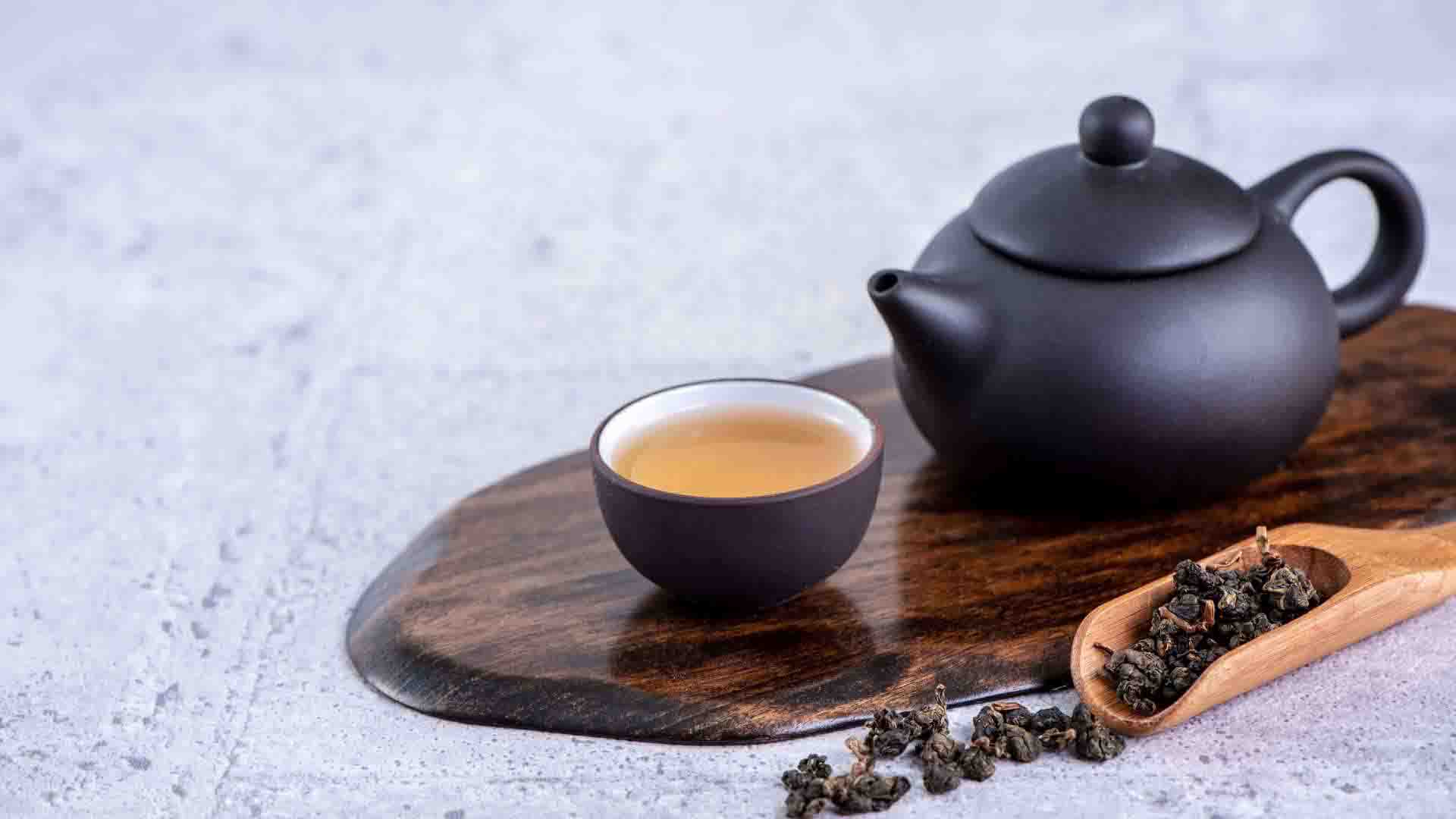
How Our Partnership Benefits You: The Consumer
By engaging directly with STB Leaf, consumers gain access to premium, ethically sourced tea products while simultaneously contributing to the socio-economic upliftment and environmental sustainability of tea-producing regions. This partnership fosters a transparent supply chain, allowing consumers to trace the origin of their tea and understand the positive impact of their purchases on farming communities.
This direct connection not only ensures the quality and authenticity of the tea but also empowers consumers to be part of a sustainable ecosystem that values both people and the planet. This commitment to ethical sourcing and farmer empowerment directly translates into a superior product, as the well-being of the farmers and the health of the tea gardens are intrinsically linked to the quality and flavor profile of the tea leaves.
Furthermore, consumer support for such initiatives encourages the widespread adoption of sustainable practices across the industry, driving market demand for ethically produced goods and promoting long-term ecological balance. This symbiotic relationship between consumers, STB Leaf, and tea farmers exemplifies a model of responsible consumption where every purchase contributes to a virtuous cycle of economic empowerment and environmental stewardship.
The Future of Tea Farming with STB Leaf
STB Leaf envisions a future where tea farming is synonymous with environmental resilience, economic prosperity for growers, and continued innovation in sustainable agricultural practices. This forward-looking perspective includes pioneering research into climate-adaptive tea varietals and exploring advanced agroecological methods to enhance biodiversity and soil health within tea gardens.
The company is also committed to expanding its reach, working with more smallholder farmers and providing them with the necessary resources and training to thrive in a changing climate, further aligning with principles of sustainable agriculture that balance ecological resilience with economic returns.
This includes integrating blockchain technology to enhance traceability and transparency throughout the supply chain, allowing consumers to verify the origin and journey of their tea from farm to cup. This integration will provide an immutable record of each batch, certifying fair labor practices and sustainable cultivation methods, thereby reinforcing consumer trust and brand authenticity.
Furthermore, STB Leaf aims to establish community-led processing centers, empowering local farmers to take greater ownership of the value chain and secure higher returns for their produce.
Support Our Farmers, Savor Our Tea
Join us in this journey toward a more sustainable and equitable tea industry by choosing STB Leaf for your daily brew. Every cup of STB Leaf tea not only offers a premium taste experience but also directly contributes to the empowerment of our dedicated farmers and the health of our planet. By supporting STB Leaf, you participate in a movement that prioritizes ethical sourcing, environmental stewardship, and the socio-economic well-being of tea-producing communities, ensuring a positive impact with every purchase.

FAQs About Our Tea and Farmers
Here, we address some frequently asked questions about our commitment to quality, sustainability, and the stories of the hardworking individuals who cultivate our exceptional teas. This section provides further insights into the meticulous processes and dedication that go into bringing STB Leaf tea from the garden to your cup, ensuring complete transparency for our valued customers.
Q: What makes STB Leaf tea premium?
A: STB Leaf tea’s premium quality stems from a meticulous cultivation process that integrates sustainable farming practices, selecting only the finest tea leaves from the lush gardens of Sylhet, Bangladesh. Our commitment to traditional harvesting methods, combined with modern quality control measures, ensures each batch delivers an unparalleled aroma, flavor, and freshness.
Q: Where are your tea gardens located?
A: Our tea gardens are nestled in the verdant, rolling hills of the Sylhet region in Bangladesh, an area renowned for its ideal climate and fertile soil, which are crucial for cultivating high-quality tea leaves. This geographical advantage, combined with the dedicated efforts of our partner farmers, contributes significantly to the unique terroir and exceptional characteristics of our fresh premium tea.
These smallholder farms, often family-operated and typically less than 50 hectares, collectively produce a substantial portion of the region’s tea. The tea produced here is highly sought after due to its distinctive flavor profile, which is a direct result of the unique agro-climatic conditions and traditional farming techniques employed by these local growers. This region’s rich biodiversity and optimal rainfall patterns contribute to the robust growth and distinctive characteristics of the tea plants.
Q: How does STB Leaf support its farmers?
A: STB Leaf is deeply committed to improving the livelihoods of its partner farmers by ensuring fair pricing for their green leaf tea, directly linking their compensation to auction prices to guarantee an equitable distribution of value. This approach ensures that farmers receive a fair share of the market value, fostering economic stability and encouraging reinvestment in sustainable farming practices.
Beyond fair compensation, we also invest in training programs focused on organic cultivation and climate-resilient agricultural techniques, enhancing both the quality of their yield and the long-term viability of their farms. These initiatives not only elevate the socio-economic status of individual farmers but also contribute to the broader economic development of the tea-producing regions in Bangladesh.
Q: Are your farming practices sustainable?
A: Yes, STB Leaf is committed to sustainable farming practices, integrating agroforestry, natural pest control, and water conservation methods to minimize environmental impact and preserve the ecological balance of the tea gardens. We prioritize biodiversity by encouraging native plant growth and protecting local wildlife habitats, ensuring a thriving ecosystem for our fresh premium tea production. Our sustainability efforts extend to empowering local communities through educational programs and healthcare initiatives, further reinforcing the holistic approach to responsible tea cultivation.
Q: Can I visit the tea gardens?
A: While direct visits to the private tea gardens are not always feasible due to logistical and operational considerations, STB Leaf offers virtual tours and engaging documentaries that provide an immersive experience into the daily lives of our farmers and the serene landscapes of the Sylhet tea gardens. These multimedia resources are meticulously crafted to convey the authentic stories and dedication behind every cup of STB Leaf tea, offering a window into our sustainable practices and the rich heritage of tea cultivation in Bangladesh.
Additionally, we plan to implement augmented reality experiences to allow consumers to virtually explore specific plots within the Sylhet tea gardens and interact with the farmers themselves, fostering a deeper connection to the origin of their fresh premium tea.
Q: How can I ensure the tea I purchase is ethically sourced?
A: STB Leaf ensures ethical sourcing through transparent supply chains, Fair Trade certifications where applicable, and direct partnerships with our farmers, guaranteeing fair wages and safe working conditions. We believe that traceability and accountability are paramount, which is why we meticulously document every step of our tea’s journey from cultivation to packaging, making this information accessible to our consumers. This commitment allows us to uphold stringent ethical standards and build lasting, trust-based relationships within the tea-producing communities of Bangladesh.
Q: What types of tea does STB Leaf offer?
A: STB Leaf offers a diverse range of fresh premium tea, including orthodox black tea, green tea, and specialty blends, all sourced from the finest tea gardens in Sylhet, Bangladesh. Each variety is cultivated to highlight the unique characteristics imparted by the region’s rich soil and climate, providing a distinct flavor profile for every tea enthusiast. Our selection emphasizes single-origin teas, allowing connoisseurs to experience the subtle nuances of specific microclimates within the Sylhet region, differentiating our offerings from more generic blends .
Q: How does climate change affect tea production in Bangladesh?
A: Climate change presents significant challenges to tea production in Bangladesh, primarily through altered rainfall patterns, increased temperatures, and more frequent extreme weather events like floods and droughts, which directly impact crop yields and quality. These climatic shifts necessitate the implementation of resilient agricultural strategies and innovative cultivation techniques to safeguard the future of tea farming in the region.
Q: What are the benefits of buying tea from STB Leaf?
A: Purchasing from STB Leaf not only guarantees access to fresh premium tea of exceptional quality but also directly supports the livelihoods of smallholder farmers and promotes sustainable agricultural practices in Bangladesh. Our commitment extends beyond commerce, fostering environmental stewardship and community development within the Sylhet tea gardens.
By choosing STB Leaf, consumers actively participate in a virtuous cycle that uplifts local economies and preserves the delicate ecosystems vital for producing high-quality, ethically sourced tea. This dedication to transparency and ethical sourcing differentiates STB Leaf in a global agri-food supply chain often characterized by fragmentation and a lack of accountability.

